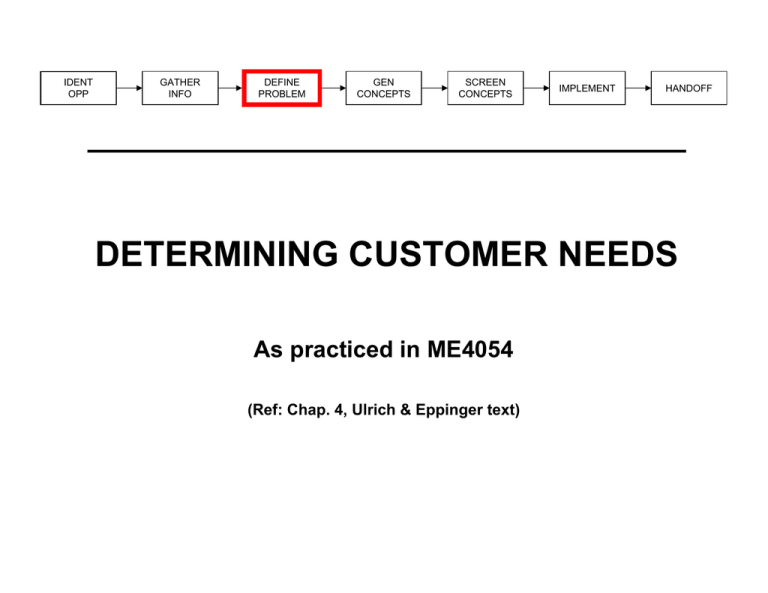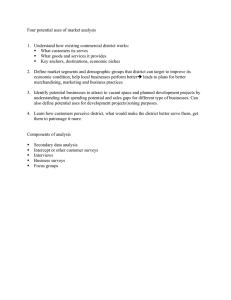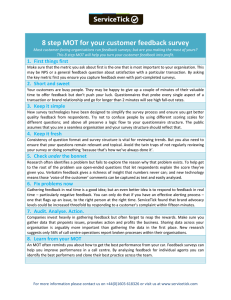DETERMINING CUSTOMER NEEDS
advertisement

IDENT OPP GATHER INFO DEFINE PROBLEM GEN CONCEPTS SCREEN CONCEPTS IMPLEMENT HANDOFF DETERMINING CUSTOMER NEEDS As practiced in ME4054 (Ref: Chap. 4, Ulrich & Eppinger text) Some ways to determine needs… • My advisor said, “Do it this way” • Marketing said, “Here are the specs” • Team member Sam said, “Gosh, I would buy one!” Another way to determine needs… • Determine who the customers are • Determine what information should be gathered from customers • Determine how that information should be gathered And then, translate that information into product requirements and engineering specifications Gathering customer information • • • • Depth interviews Surveys “On the job” observations Focus groups Gather and report raw data, no interpretations….yet! Depth interviews • Great for getting lots of info quickly • Can go into the “why” • Have an interview script…clear with team and with advisor • Take notes…of everything, not just what you want to hear…record direct quotes • Can be hard to schedule • Be mindful of people’s time • Do over telephone or in person Surveys • • • • • • • Hard to create a good questionnaire Keep it short Minimize essay questions (interview instead) Need large N for quantitative data Screen respondents…you want the right sample Mail surveys…time scale wrong for ME4054 Web surveys…only if you direct people to it Observations • • • • • • GREAT method! Be a “fly on the wall” Observe environment where design will be used Take notes Best way to understand the user Important for engineers to observe…and not simply rely on what others say Focus groups • • • • • Generates group discussion Can resolve conflicting views More than just getting people together Needs a skilled moderator Sometimes done in special facility with 1-way mirror and design team watching • Requires planning, scheduling • Logistics challenging for 4054 project What to do with the information… • Collect information as raw data, do not interpret as you take notes • See text for some great methods to organize and translate raw data into info you can use to design your product • Always check info against your common sense Are you done? • After you have a concept, or a prototype, get reaction from customer(s) • Bring the prototype or drawing Gathering info from customer is a continuous process The bottom line… It makes no sense to create a design that nobody other than the design team wants!

